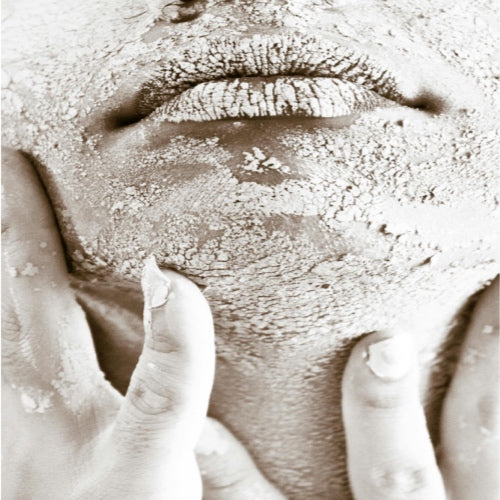
UNDERSTANDING DRY SKIN: CAUSES, SYMPTOMS, AND EFFECTIVE SOLUTIONS
Understanding Dry Skin: Causes, Symptoms, and Effective Solutions
Dry skin is a common issue that many people face, especially during the colder months. It can be uncomfortable, itchy, and sometimes even painful. Understanding the causes of dry skin and how to effectively manage it can make a significant difference in maintaining healthy, hydrated skin. In this blog, we’ll explore what causes dry skin, how to recognize its symptoms, and the best ways to treat and prevent it.
What Causes Dry Skin?
Dry skin, also known as xerosis, occurs when the skin loses too much water or oil. Several factors can contribute to this condition:
Weather: Cold, dry air during winter can strip the skin of moisture, leading to dryness. Indoor heating can also reduce humidity, exacerbating the problem.
Hot Showers and Baths: Prolonged exposure to hot water can remove natural oils from the skin, leaving it dry and irritated.
Harsh Soaps and Detergents: Products that contain strong chemicals or fragrances can disrupt the skin’s natural barrier, leading to dryness.
Aging: As we age, our skin produces less oil, which can result in dryness and a rough texture.
Medical Conditions: Certain conditions, such as eczema, psoriasis, and thyroid disorders, can cause or worsen dry skin.
Dehydration: Not drinking enough water can lead to overall dehydration, which affects the skin’s moisture levels.
Symptoms of Dry Skin
Recognizing the symptoms of dry skin is the first step towards effective treatment. Common signs include:
- - Tightness, especially after bathing or swimming
- - Rough or scaly patches
- - Itching
- - Redness
- - Cracks in the skin that may bleed
- - Flaking or peeling
How to Treat and Prevent Dry Skin

Moisturize Regularly: Use a high-quality, hydrating moisturizer to lock in moisture. Look for products containing ingredients like hyaluronic acid, glycerin, and ceramides, which help retain moisture and repair the skin barrier. Apply moisturiser immediately after bathing when the skin is still damp.
Avoid Hot Water: Opt for lukewarm water when showering or washing your face and limit the duration to prevent stripping the skin of its natural oils.

Gentle Cleansing: Choose mild, fragrance-free cleansers that do not contain harsh chemicals. Avoid over-washing your skin, as this can remove essential oils.
Humidify Your Environment: Use a humidifier at home, especially during the winter, to add moisture to the air and prevent your skin from drying out.
Hydrate from Within: Drink plenty of water throughout the day to maintain overall hydration and support skin health.
Protect Your Skin: Wear gloves and protective clothing in cold or windy weather to shield your skin from the elements. Also, apply a broad-spectrum sunscreen with at least SPF 30 to protect your skin from UV damage, which can worsen dryness.
Avoid Irritants: Steer clear of skincare products that contain alcohol, artificial fragrances, or dyes, as these can irritate and dry out the skin. Opt for products labeled as hypoallergenic or suitable for sensitive skin.
Diet and Nutrition: Incorporate foods rich in omega-3 fatty acids, such as fish, flaxseeds, and walnuts, into your diet. These nutrients help maintain the skin’s lipid barrier and retain moisture.
Exfoliate Gently: Use a gentle exfoliant to remove dead skin cells and promote the absorption of moisturizers. Avoid harsh scrubs that can further irritate dry skin.
Skincare Routine for Dry Skin
Morning Routine
- Cleanser: Use a gentle, hydrating cleanser.
- Toner: Apply an alcohol-free toner to balance the skin’s pH.
- Serum: Use a hydrating serum with hyaluronic acid.
- Moisturiser: Apply a rich, hydrating moisturizer.
- Sunscreen: Finish with a broad-spectrum SPF 30 or higher.
Evening Routine
- Cleanser: Use a gentle, hydrating cleanser.
- Exfoliant: Exfoliate 1-2 times a week with a gentle product.
- Serum: Apply a nourishing serum with ingredients like hyaluronic acid or peptides.
- Moisturiser: Use a thicker night cream to lock in moisture.

Dry skin can be uncomfortable, but with the right care and attention, you can restore your skin’s hydration and health. By understanding the causes and symptoms of dry skin and adopting effective skincare practices, you can maintain a smooth, supple complexion year-round. Remember, consistency is key, so stick to your routine and listen to your skin’s needs.
Invest in your skin’s health, and enjoy the benefits of a well-hydrated, radiant complexion.
SIGNATURE:
Team AūxacannDATE:










